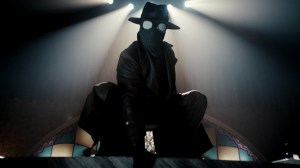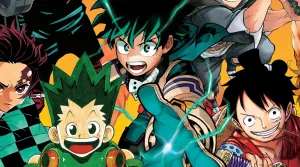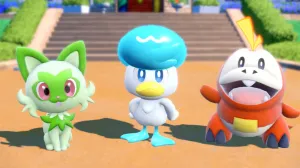Wish Dragon has been yet another animated hit for Netflix this year, building on the success of The Mitchells vs. The Machines and proving the streamer’s partnership with Sony Animation to be a fruitful one. The film has been a staple of the Netflix Top 10 since its debut earlier this month and has been met with acclaim from critics and fans. A big reason for that success is Wish Dragon‘s authenticity, aiming to tell a genuine and thoughtful Chinese story.
Videos by ComicBook.com
If you’ve seen the film, it may come as a surprise to learn that its director, Chris Appelhans, is a white guy from Idaho. That said, Appelhans shares a deep connection to the story of Wish Dragon thanks to a lifelong friend, and he set out to make the film as authentically Chinese as possible.
“Yeah, it’s weirdly personal,” Appelhans told ComicBook.com in an exclusive interview. “I always feel a little weird explaining how a kid from a small town in Idaho could be making a personal movie set in China. But I went there about 20 years ago, the first time with a college friend, who grew up there. I made friends with his cousin who was basically like my clone. We were just the same person, born on opposite sides of the world. We just clicked. We thought about everything the same way, just like a platonic soulmate, so he became this lifetime friend.
“And over the next, I don’t know, maybe 10 years, in our 20s, he was living his life, navigating modern China, which was transforming overnight and this crazy transformation. And I just constantly talked to him about it. And it constantly made me kind of reflect on my life and what choices I was making in the world that I lived in.”
Hearing about those transformations in China, and the way his friend navigated those challenges on a day-to-day basis, made Appelhans think of fairy tales or Charles Dickens novels. His friend then mentioned that the story of Aladdin was originally a Chinese folktale, and that’s when everything started to click.
“I basically set out to make a movie for my friend, and that started this crazy journey,” said the director. “And my gosh, I think two months ago, back in March or February, when it came out in China, he was finally able to go see it. It was really sad that I couldn’t go with him, but he sent me a very nice email and said, basically, ‘I went to see your movie. I thought it was pretty darn good. I stayed after and watched all the credits. And then I went the next day, and I watched it again. And then I went the next day. And then I went for 13 more days. And the last time I watched it, the last day it was in the theater, I got a little emotional, I cried a little bit.’
“And it was just the perfect ending for me personally, as a filmmaker. Because he introduced me to the country. It was his life that was sort of my portal. And that was my goal was to make a movie that recreated that experience that I had for a worldwide audience.”
Appelhans wanted to make a movie for and about his friend, but he knew he wouldn’t do it unless it could be made as authentically as possible. That meant making it in China.
“All the big American students had shown interest. And that would have been a much bigger budget and a lot more resources to do it,” Appelhans toldus. “But I just knew. I couldn’t make it here. I had to make it in China, with a Chinese team and a Chinese studio. And there wasn’t really one. So we just had to build it. So I found a small, really talented VFX studio that wanted to get in the animation business. And they had this young team of Chinese talent that were like ’90s generation. And they were like, ‘Oh, this is like our childhood. This story is great, but here’s all the things you have wrong. I would never say that to my mom. I wouldn’t hug her until the very end of the movie when everything is like when we’re finally like after our stoicism is exhausted.’ And in that moment that I talked to them, I was like, ‘I have no choice but to do it there.’”
“I think it’s authentic, because I guess you could say that I directed the movie, but who made it, it’s made by primarily a team of Chinese artists,” he continued. “They brought their lives into it. And I was just lucky to channel that and focus it through the language of film. But again, that is the power of this art form, I think, is that it does transcend national boundaries.”
Wish Dragon is now streaming on Netflix.








